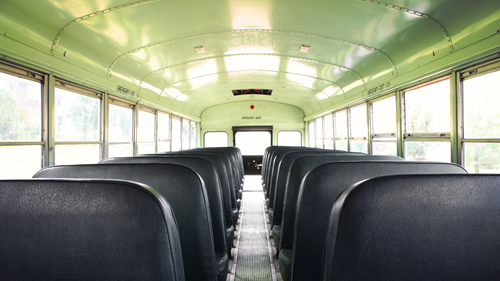Bullying on school journeys
You have a right to be safe from bullying wherever you are. This includes on the journey to and from school.
What is bullying?
Bullying is any behaviour that is meant to hurt you, is repeated and where it’s hard for you to defend yourself. On a school journey, this could include things like:
- name calling
- being pushed around
- tripped over
- hit and hurt
- sexual comments or touching
- having your belongings taken or destroyed
- people taking photos or videos of you in order to make fun of you
- being forced to hand over money

Steps you can take
If you are being bullied, or you see it happening to other children, then it’s important you get help.
- Talk to someone you trust - for example a family member or teacher. Explain what is happening and how it makes you feel. Let them know what they can do to help.
- In the short term, do what you can to stay away from the people doing the bullying. Sit, stand or travel to school with people you trust.
- If they are calling you names, remember that there is nothing wrong with you. It is the people doing the bullying that have the problem, not you.
- It can help to repeat a sentence in your head that makes you feel safe or strong. For example, ‘I am not alone. I am stronger than this and will get through it’.
- Look out for other children that might be being bullied. Sit, stand or walk with them. You will need to decide whether it is safe to say something to children that are bullying or hurting others, but make sure they can see you are not joining in or finding it funny.
- Let the school know if bullying is happening and ask what you can do together to make it stop.
- Keep a diary of events. It can help the school or police if you keep a record of when and what is happening.
- Look for people who can help you and remember you can always call or email ChildLine.
Criminal behaviour
Bullying can become criminal behaviour if you are physically or sexually assaulted, or threatened - whether face to face or through phones. This means you can contact the police or your local authority for help.
If you are in immediate danger, do what you can to get out of the situation and get help. If that means getting off the bus early, running to a safe place, yelling, or asking a stranger to help you, then do it. If you, or someone around you, is at risk of being seriously hurt then dial 999.

